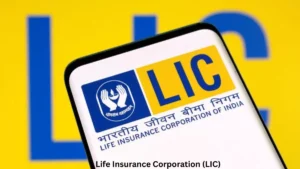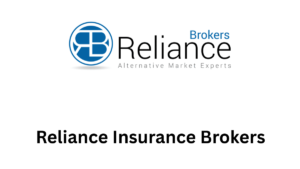Insurance is a crucial aspect of financial planning and security, especially in a vibrant and fast-growing city like Dubai. Whether you’re a resident, expatriate, or business owner, understanding the types of insurance available, how to choose the right policy, and navigating the claim process can save you time, money, and stress. This comprehensive guide covers everything you need to know about Dubai insurance in 2025.
| Insurance Type | Description | Key Features | Who Needs It? |
|---|---|---|---|
| Health Insurance | Mandatory insurance covering medical expenses for residents. | Hospitalization, outpatient care, maternity, meds | All Dubai residents |
| Vehicle Insurance | Legal requirement for drivers; covers liability and vehicle damage. | Third-party liability, comprehensive coverage | Vehicle owners/drivers |
| Property Insurance | Protection for homes and rental properties against damage and theft. | Building and contents coverage | Homeowners, renters |
| Travel Insurance | Covers emergencies, cancellations, and losses during travel. | Medical abroad, trip cancellations, lost luggage | Frequent travelers |
| Life Insurance | Provides financial security to beneficiaries in case of death. | Death benefits, permanent disability | Individuals, families, expats |
| Group Insurance | Employee insurance schemes offering life, accident, and disability benefits. | Group coverage, employer-sponsored | Employers, employees |
| Business Insurance | Protects businesses from liability, property damage, and employee-related risks. | Liability, property, workers’ compensation | Business owners |
What is Dubai Insurance and Why is it Important?

Dubai insurance refers to various protection plans offered by licensed providers in the UAE to cover health, vehicles, property, life, travel, and business risks. The Dubai government and regulatory bodies, including the Dubai Health Authority (DHA) and Dubai Financial Services Authority (DFSA), oversee the insurance sector to ensure compliance and protect consumers.
In Dubai’s dynamic environment, insurance offers peace of mind and financial safety against unforeseen events like accidents, illnesses, property damage, or business losses.
Read more: Epidural Injection Price in UAE: What Expecting Mothers Should Know in 2025
Types of Insurance Available in Dubai
Health Insurance
Health insurance is mandatory for all residents in Dubai, ensuring access to quality medical care. Plans typically cover hospitalization, outpatient services, maternity, prescription drugs, and emergency care. Employers often provide health insurance for employees, while individuals can purchase additional coverage.
Vehicle Insurance
Vehicle insurance is legally required to drive in Dubai. The two main types are:
- Third-party liability insurance: Covers damage or injury to others.
- Comprehensive insurance: Includes third-party coverage plus damage to your vehicle.
Choosing the right vehicle insurance depends on your needs, car value, and budget.
Property Insurance
Protect your home or rental property against risks like fire, theft, and natural disasters. Property insurance policies in Dubai vary, covering building structure, contents, or both. Some landlords also require tenants to have renters insurance.
Travel Insurance
Dubai’s position as a global hub means many residents travel frequently. Travel insurance provides coverage for trip cancellations, medical emergencies abroad, lost luggage, and other travel-related risks.
Life and Group Insurance
Life insurance offers financial protection to your family in case of untimely death. Group insurance schemes are popular among employers who want to provide benefits to their staff, including coverage for accidents and disabilities.
Business and Commercial Insurance
Dubai’s thriving business ecosystem requires various insurance products, such as liability insurance, property insurance, professional indemnity, and workers’ compensation, to protect businesses from financial losses.
How to Choose the Right Insurance in Dubai
Selecting the best insurance involves:
- Assessing your personal or business needs thoroughly.
- Comparing policies from multiple providers.
- Reading terms, coverage limits, exclusions, and premiums carefully.
- Considering the insurer’s claim settlement ratio and customer service.
- Consulting insurance brokers or experts if needed.
The Insurance Claim Process in Dubai
Filing a claim can be straightforward if you follow these steps:
- Notify your insurance provider as soon as possible.
- Submit all required documents like medical reports, police reports, or receipts.
- Fill out claim forms accurately.
- Follow up regularly until the claim is processed.
Be aware of common challenges like missing paperwork or delayed submissions and avoid them to speed up approval.
Read more: Discover 7 Amazing Benefits of CHI Foot Spa Al Barsha – Traditional Chinese Healing in Dubai
Recent Trends and Innovations in Dubai Insurance
Dubai’s insurance sector is evolving with technology:
- Digital platforms allow easy policy purchase and management online.
- Usage-based insurance uses telematics to calculate premiums based on actual usage.
- AI and blockchain enhance fraud detection and streamline claim settlements.
- Government reforms continue to improve insurance accessibility and affordability.
FAQs about Dubai Insurance
- Is health insurance mandatory in Dubai?
Yes, it is mandatory for all residents. - What happens if I drive without vehicle insurance?
Driving uninsured can lead to fines, vehicle impoundment, or legal penalties. - Can expats get life insurance in Dubai?
Yes, many insurers offer life insurance plans tailored for expatriates. - How long does it take to settle an insurance claim?
Settlement time varies by insurer and claim complexity but typically ranges from a few days to a few weeks.
Conclusion
Dubai insurance is an essential tool to safeguard your health, assets, and financial well-being in a fast-paced city. By understanding the available insurance types, choosing policies wisely, and knowing how to claim, you can ensure peace of mind for yourself and your loved ones. Always stay informed and regularly review your coverage to adapt to changing needs.





